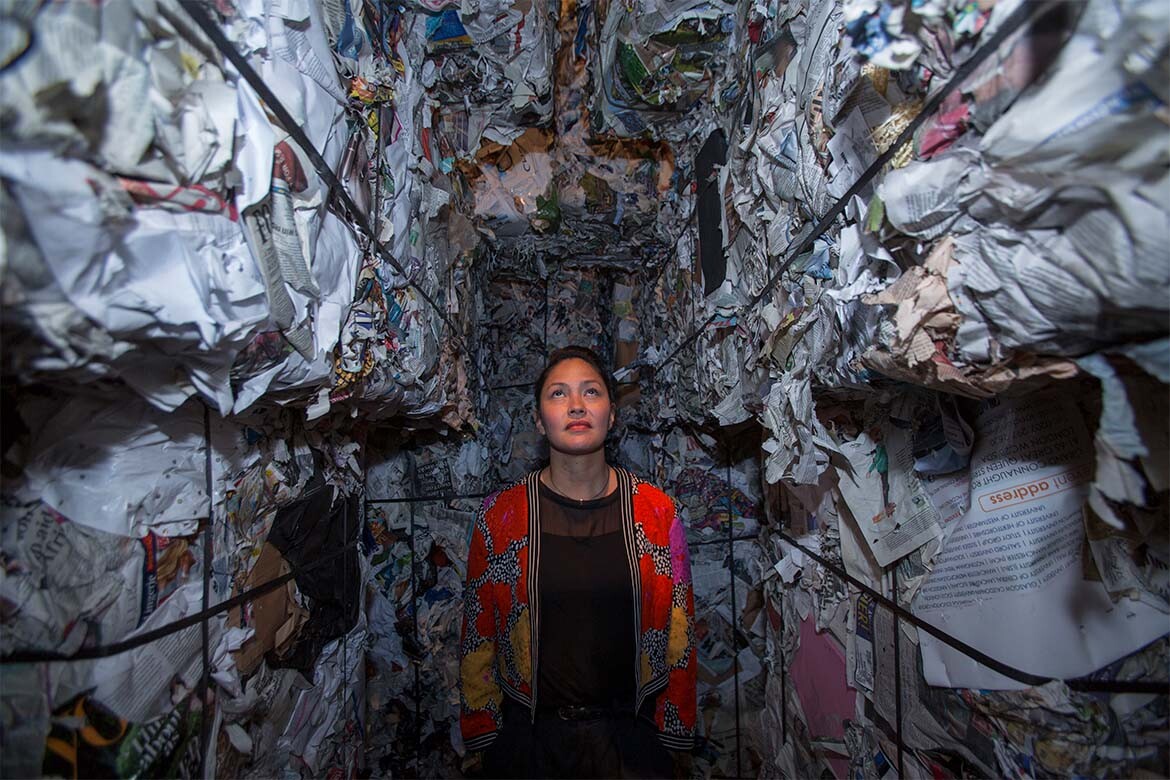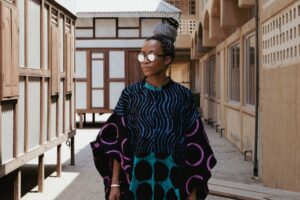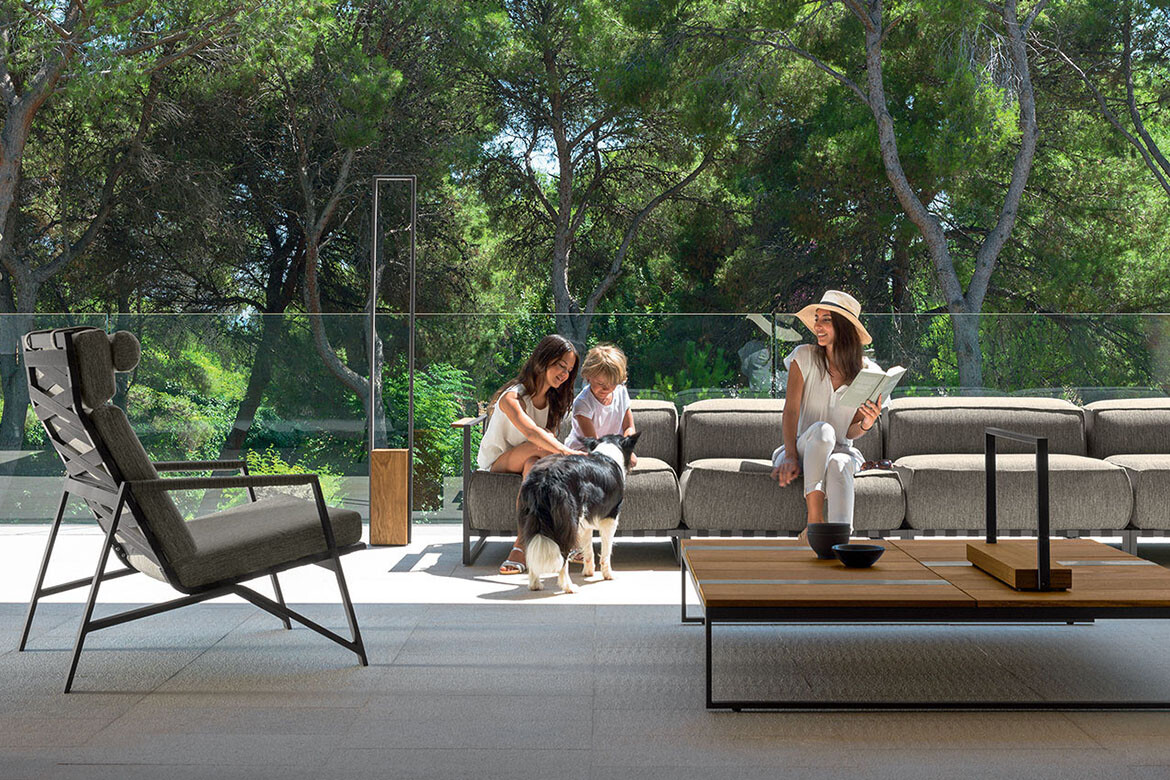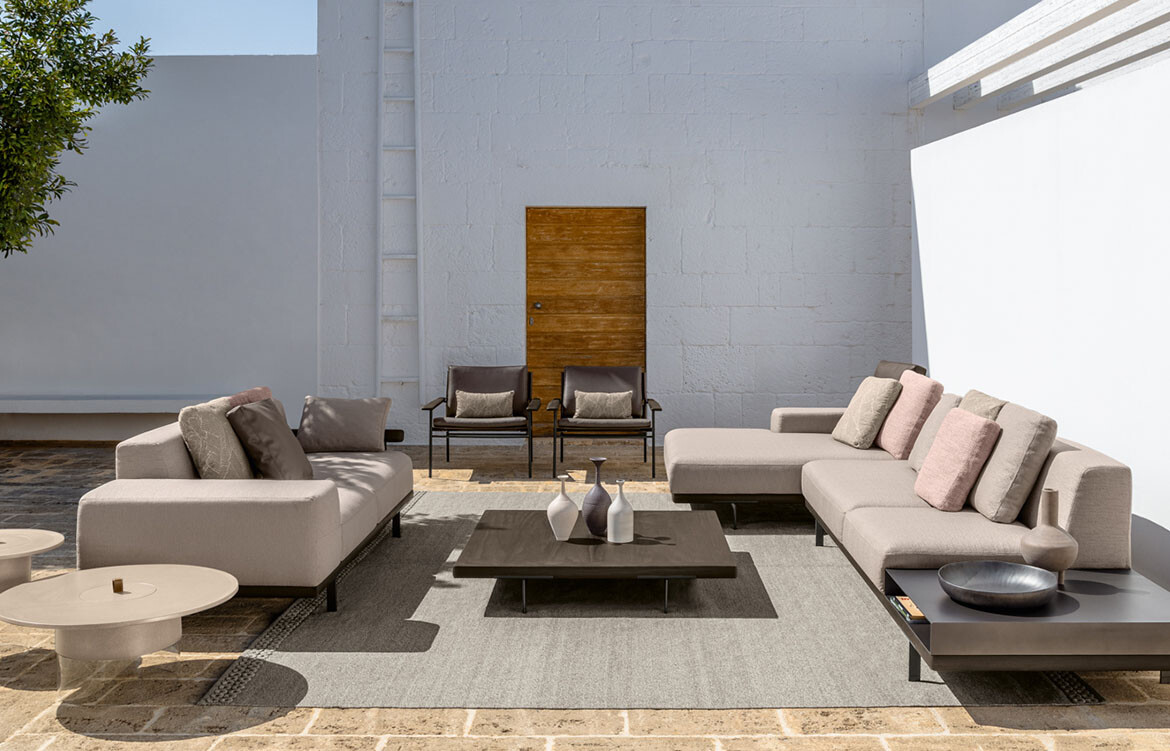Comprised of more than 400 items, including 200 pairs of shoes, posters, artwork, process materials and photography – Sneakers Unboxed: Studio to Street has made its debut opening in Australia at the HOTA Gallery on the Gold Coast.
The exhibition offers a comprehensive exploration of a phenomenon that has not only revolutionised performance design but also sparked the emergence of new youth cultures, leaving an indelible mark on the world of fashion.
Guided by the curation of Ligaya Salazar, Sneakers Unboxed: Studio to Street scrutinises the impact of social movements and youth culture on the evolution of sneakers.
An everyday item that has shaped cultural narratives, we ask the curator about her inspirations and noteworthy inclusions in this mammoth show.
What’s your background and what led you to curate this show?
I have been a curator working on the intersection of design and art for nearly two decades. I had previously worked on exhibitions touching on sneaker history for the Victoria and Albert Museum and other smaller galleries, which is why the Design Museum approached me about this exhibition.

What can people expect to see at the exhibition?
The exhibition features both the cultural history and the design history of sports footwear, more widely known as Sneakers. In the first section, the approach is focused on taking the visitor through some of the world’s most influential cultural moments and movements that have and continue to fuel the desire, admiration and application of sports footwear in our day-to-day lifestyle and culture. This part is all about the reasons why sneakers have become such a ubiquitous staple in almost everyone’s wardrobe.
The latter section of the exhibition starts with the advent of rubber being applied to footwear, led by industry innovators such as Goodyear. The design history tracks the continuous evolution of sports footwear form, the integration of new ideas, new materials and the ambitions to continue creating a better athletic outcome for the wearer, through running, basketball, tennis, fitness training and many more activities and sporting endeavours.
What was the selection process for which sneakers were included?
As per the structure of the exhibition, Style and Performance, the selection of the sneakers on display is mainly driven by the decision to prioritise specific sub-stories in each section. Within each story there are some more notable sneakers than others, so our intention was to include those which best embody a particular element of the storyline.

Do you have a favourite pair?
This is such a hard question, but if I think about it through the lens of what is in the exhibition, and drawing from the two sections of the show, Style and Design, I’ll give you one from each section:
As a big fan of laceless footwear, I would have to say that the Reebok Instapump Fury and Nike Air Rift are two of my all-time favourite designs and products to wear, both of which have featured heavily in my wardrobe over the years.

Can you share some insight into the world of sneakers?
The world of sneakers is vast. And as the predicted sales figures on show in the exhibition suggest, it will only continue to encapsulate and touch even more of the global population. With that in mind, insight could come from any corner of the very broad spectrum of sneaker history.
However, with the exhibition structure – part one being about the socio-cultural history of sneakers, and part two being the design history – I think there will be a continued focus on how the sociocultural side of sneakers is part of a chosen identity by particular sub-sections of society, particularly young people.
Equally, and in parallel, the race to innovate, evolve and respond to social and environmental pressure will be a big area of unfolding stories. The need to create evermore advanced performance sports shoe products – with the vital requirement of reducing negative impacts on the planet – is demanding a lot of focus from the sneaker industry and community.

From a design perspective, is there anything of note eg. Fabric innovation, form, production process?
There are a number of experimental and innovative technologies on display within the exhibition, from material innovations that are sustainable and reduce waste, to resourceful approaches to upcycling and extending the life of existing footwear products. These are all indicative of where our opportunities and choices as consumers and brands will evolve in the near future.
Sneakers Unboxed: Studio to Street is running at HOTA Gallery, Gold Coast until Wednesday 24 January 2024.




















